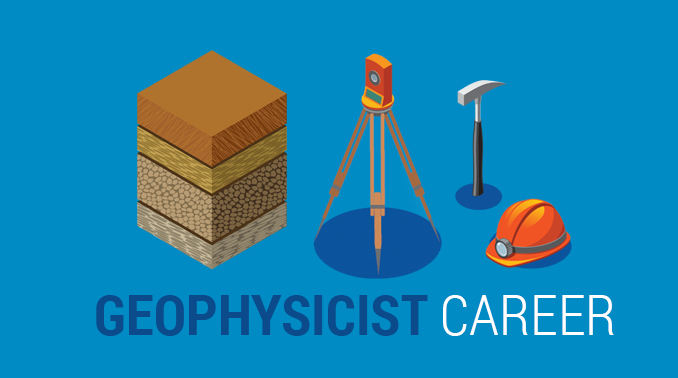All Categories
Featured
Table of Contents
Geophysicist Job Description in Parmelia Oz 2021
This work is progressively contracted out, so consultancies provide another source of work. Consultancy firms vary in size, from extremely small companies to large multinationals. Some consultancies are quite specialised in utilizing specific geophysical strategies or working in particular locations, while others use a more varied series of services to their clients.
The extraction of gas from land fill websites is another location of employment and this may grow in the future. Exploration business might undertake work for construction firms, public utility, mining companies and ecological agencies, so geophysicists may be used in any of these settings. Other employers consist of: geological surveysgovernment bodies and agenciesuniversities and research institutes.


Jobs might be listed in the oil and gas sector press. Recruitment is impacted by oil price variations and the level of competitors for positions differs depending on this. Professions Days, which cover the full variety of geoscience careers and are generally participated in by a number of crucial market companies, are run by The Geological Society.
What Does A Geophysicist Do? in Eden Hill WA 2020
A few of the large oil and gas companies offer a complete two-year structured training programme throughout the breadth of geophysics, consisting of the opportunity to experience work in different teams prior to specialising in one location. Your training might consist of deal with: existing wellsmagnetic and gravitational prospective field data analysisresearchrock analysis. Nevertheless, it's more typical for your initial training to be provided on the task.

There may be a probationary period during which you work alongside a skilled colleague. Competency-based appraisals occur frequently in many firms. In smaller sized companies, and for scholastic posts, there is not likely to be any formal training - you'll be expected to start work straightaway and choose up skills as you go along.
If you work for a smaller company, you may discover that you need to take obligation for organizing and funding your own development and training. If you have a geology degree, subscription of The Geological Society can be useful for networking and for keeping up to date with the market.
Surface Geophysical Methods in Bayswater Australia 2023
You may likewise discover it useful to join the PESGB (The Petroleum Exploration Society of Great Britain, which has a geophysics special interest group. After a probationary period, and once you've gained some experience, you could progress to senior geophysicist, then team leader and then into a senior function in management.
The ease of movement in between functions depends on the business structure. Research study at Masters or Ph, D level in a subject associated to geophysics or geosciences might aid with your career development and progression. The employment market within the oil and gas market is very reliant on cost and this might impact your opportunities for career development.
Nevertheless, not all jobs are dependent on the oil and gas industries. For experienced geophysicists, freelance consultancy uses a good path for career development. You can likewise specialise in a particular location of geophysics. As a geophysicist, you're likely to have a number of jobs throughout your working life. International movement is important for dealing with peaks and troughs in different nations at various times.
What Is Geophysics And What Do Geophysicists Do? in Mt Richon Australia 2020
From geophysics, it's possible to focus on seismology (completing further training to become a seismic interpreter) or to move into related areas such as engineering geology or danger forecast.
Deciding what to study in college is a difficult option. Even if you know that your field of interest lies in science, what program of research study is best for you? If you make the choice to significant in physical and biological sciences and pursue a profession as a geophysicist, you're preparing for an amazing and profitable occupation.
The very first action to accomplishing your objective of becoming a geophysicist is making a degree. Even for entry-level positions in the field of geoscience, you'll require a bachelor's degree (a geophysicist college degree) from a recognized college or university. Some research study positions need candidates to hold master's degrees or even Ph.
Geophysicist Job Description: Salary, Duties, & More in Dalkeith Australia 2021
Postgraduate degree are specifically crucial if you prepare to teach at a four-year organization. Geophysicists apply physics concepts and strategies to study the gravitational, magnetic, and electric fields of the earth. This advances scientists' understanding of both the world's interior core and its surface area. Geophysicists must be able to: analyze rocks, photographs, and other pieces of data perform research study both in the field and in labs produce maps and charts of their findings write reports To achieve all this, students need a specialized education for geophysicist careers.
As stated above, you'll need a bachelor's degree in geoscience or an associated discipline, such as a physical science or a natural science, to land an entry-level job. Trainees can also prepare by majoring in subjects like: Biology Chemistry Computer system science Engineering Mathematics Physics The above geophysicist majors offer a more generalized method to a single scientific discipline, however many programs require students to take one or more geology course.
Table of Contents
Latest Posts
How To Become A Geophysicist in Mount Claremont Oz 2023
Geophysical Survey Next Step In Carbon Storage Study in Brookdale Western Australia 2023
Geophysical Investigations in Calista Western Australia 2022
More
Latest Posts
How To Become A Geophysicist in Mount Claremont Oz 2023
Geophysical Survey Next Step In Carbon Storage Study in Brookdale Western Australia 2023
Geophysical Investigations in Calista Western Australia 2022